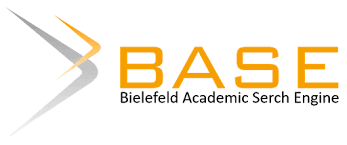PENERAPAN MODEL PEMBELAJARAN PROBLEM BASED INTODUKTION DENGAN APLIKASI ZOOM DALAM MENINGKATKAN HASIL BELAJAR MATA KULIAH ANALISIS RIIL II PRODI PENDIDIKAN MATEMATIKA
Keywords:
Problem based instruction, zoom application, learning outcomes, Real Analysis IIAbstract
This study aims to determine whether there is any influence and student response to the application of the problem-based instruction learning model with the zoom application in improving learning outcomes in Real Analysis II subjects. This type of research is classroom action research. The subjects of action research are students of semester 1 of Mathematics Education at PGRI Mahadewa University of Indonesia for the academic year 2020/2021, and the object of this research is the study of understanding the material of Sequences and Line Limits in Real Analysis II courses and student responses to Problem-based instruction learning models. In this study, two cycles were used and each cycle went through four stages of the activity process which included: planning, acting, observing, evaluating and reflecting. To obtain complete data, this study uses test and observation methods. The results of action research are: (1) There is an effect of the application of the Problem-based instruction learning model with the zoom application in improving learning outcomes (2) There is a student response to the application of the Problem-based instruction learning model with the zoom application in improving the learning outcomes of the Real Analysis II subject for students semester VII B Mathematics Education Study Program 2020/2021 is good.
Downloads
References
Abdurrahman, Mulyono. 2009. Pendidikan Bagi Anak Berkesulitan Belajar. Jakarta: Rineka Cipta
Agus Suprijono. 2010. Cooperatif
Learning. Yogyakarta: Pustaka
Pelajar.
Alfabeta Daryanto. 2011. Penelitian Tindakan Kelas dan Penelitian Tindakan Sekolah.Yogyakarta: Gova Media Departemen Pendidikan dan Kebudayaan.
Arikunto, Suharsimi. 2012. Penelitian Tindakan Kelas. Jakarta: Bumi Aksara
Burhanuddin. 2007. Pendekatan, Metode
dan Teknik Penelitian Pendidikan.
Subang: UPI PGSD Kampus
Subang.
Dalyono. 2005. Prestasi Belajar. Jakarta:
Rineka Cipta.
Darmadi, Hamid. 2011. Metode
Penelitian Pendidikan. Bandung :
Djamarah, Syaful Bahri. 2002. Prestasi Belajar dan Kompetensi Guru. Surabaya: Usaha Nasional.
Gilbert, Thomas N. et al. 2012. Chemistry: The Science in Context (3rd edition). New York: W. W. Norton & Company, Inc.
Nurkencana, Wayan dan Sunartana. 1992. Evaluasi Hasil Belajar. Surabaya: Usaha Nasional.
Oci Yulinasari, 2018. Penerapan Problem Based Instruction (PBI) Untuk Meningkatkan Hasil Belajar di Kelas XI IPS3 SMANegeri 3 Kota Bengkulu Volume 1 Nomor 2, September 2018, ISSN 2599- 3291 (Cetak), ISSN 2614-3933
Paizaluddin dan Ermalinda. 2012. Penelitian Tindakan Kelas. Bandung: Alfabeta.
Purwaningsih, Ira. 2013. Model Pembelajaran Problem Based Instruction (PBI) Untuk Meningkatkan Keaktifan Belajar dan Kemampuan Berpikir Kritis Siswa, Jurnal Pendidikan Geografi. Malang: Universitas Negeri Malang.
Rusman. 2014. Model-model Pembelajaran (Mengembangkan Profesionalisme Guru). Jakarta: Raja Grafindo Persada.
Sardiman. 2011. Interaksi dan Motivasi Belajar Mengajar. Jakarta: Raja Grafindo Persada
Sugiyono. 2013. “Metode Penelitian Pendidikan: Pendekatan Kuantitatif, Kualitatif, dan R&D”. Bandung: Alfabeta.
Taniredja, H. Tukiran dkk. 2015. Model-Model Pembelajaran Inovatif dan Efektif. Bandung: Alfabeta.
Wawan Hidayat (2018). Penerapan Model Pembelajaran Problem Based Instruction (PBI) Untuk Meningkatkan Aktivitas Dan Hasil Belajar Siswa Pada Mata Pelajaran Teknologi Mekanik Kelas X TPM Di SMKN 2 Surabaya JPTM. Volume 06 Nomor 03 Tahun 2018, 10-19
Downloads
Published
How to Cite
Issue
Section
License
Copyright (c) 2021 LPPM Universitas PGRI Mahadewa Indonesia

This work is licensed under a Creative Commons Attribution-NonCommercial-ShareAlike 4.0 International License.
Hak cipta mencakup hak eksklusif untuk mereproduksi dan mengirimkan artikel ini dalam semua bentuk dan media, termasuk mencetak ulang, memotret, mikrofilm dan reproduksi serupa lainnya, serta terjemahannya. Reproduksi dari bagian manapun dari jurnal ini, penyimpanannya di database dan transmisinya dengan bentuk atau media apa pun, seperti salinan elektronik, elektrostatik dan mekanis, fotokopi, rekaman, media magnetik, dan lain-lain, akan diizinkan hanya dengan izin tertulis dari penerbit jurnal.







1_(1).jpg)











